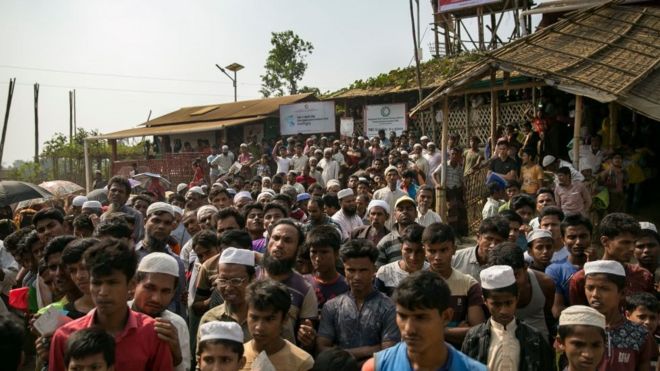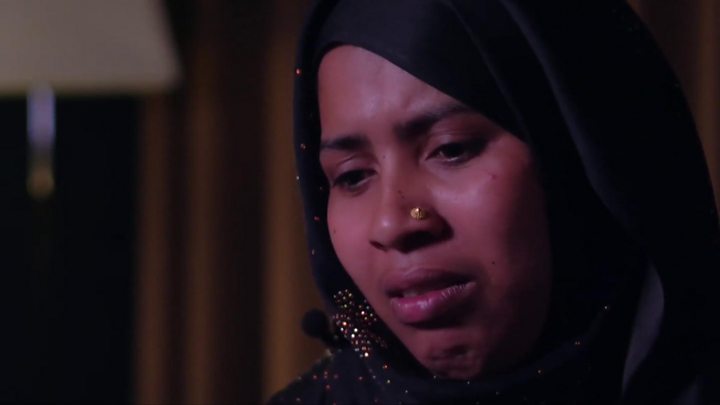Coronavirus: Two Rohingya test positive in refugee camp

There are fears the virus could spread rapidly in the camp
Two Rohingya refugees have tested positive for coronavirus in the world's largest refugee camp in Bangladesh, officials say.
Officials told the BBC that those infected were now being treated in isolation.
About 1,900 other refugees are now being isolated for tests.
The Rohingya in the crowded camps of Cox's Bazar have been living under lockdown since 14 March.
In Greece, which is also home to large numbers of refugees, officials are hoping to relocate around 1,600 vulnerable persons from its camps to other countries as the pandemic eases.
Two migrants who reached Greece's Lesbos island this week tested positive for Covid-19 and were isolated with no contact with refugee camps on the island.
How grave is the threat in Cox's Bazar?
Aid agencies have been warning for weeks about the potential impact of the virus on the Rohingya refugees who live in cramped, congested conditions and have limited access to clean water."Now that the virus has entered the world's largest refugee settlement in Cox's Bazar we are looking at the very real prospect that thousands of people may die from Covid-19," Dr Shamim Jahan, Save the Children's health director in Bangladesh, said in a statement.
"This pandemic could set Bangladesh back by decades."
Manish Agrawal, Bangladesh country director at the International Rescue Committee, pointed out that refugees were living 40,000 to 70,000 people per square kilometre.
"That's at least 1.6 times the population density on board the Diamond Princess cruise ship, where the disease spread four times as fast than in Wuhan at the peak of the outbreak," he told Reuters news agency, in reference to a cruise ship in Japan where Covid-19 spread rapidly.
Who are the Rohingya?
The Rohingya, who numbered around one million in Myanmar at the start of 2017, are one of the many ethnic minorities in the country and have faced persecution for generations.The latest exodus of Rohingya escaping to Bangladesh began on in August 2017 after militants from a Rohingya insurgent group launched deadly attacks in Myanmar on more than 30 police posts.



